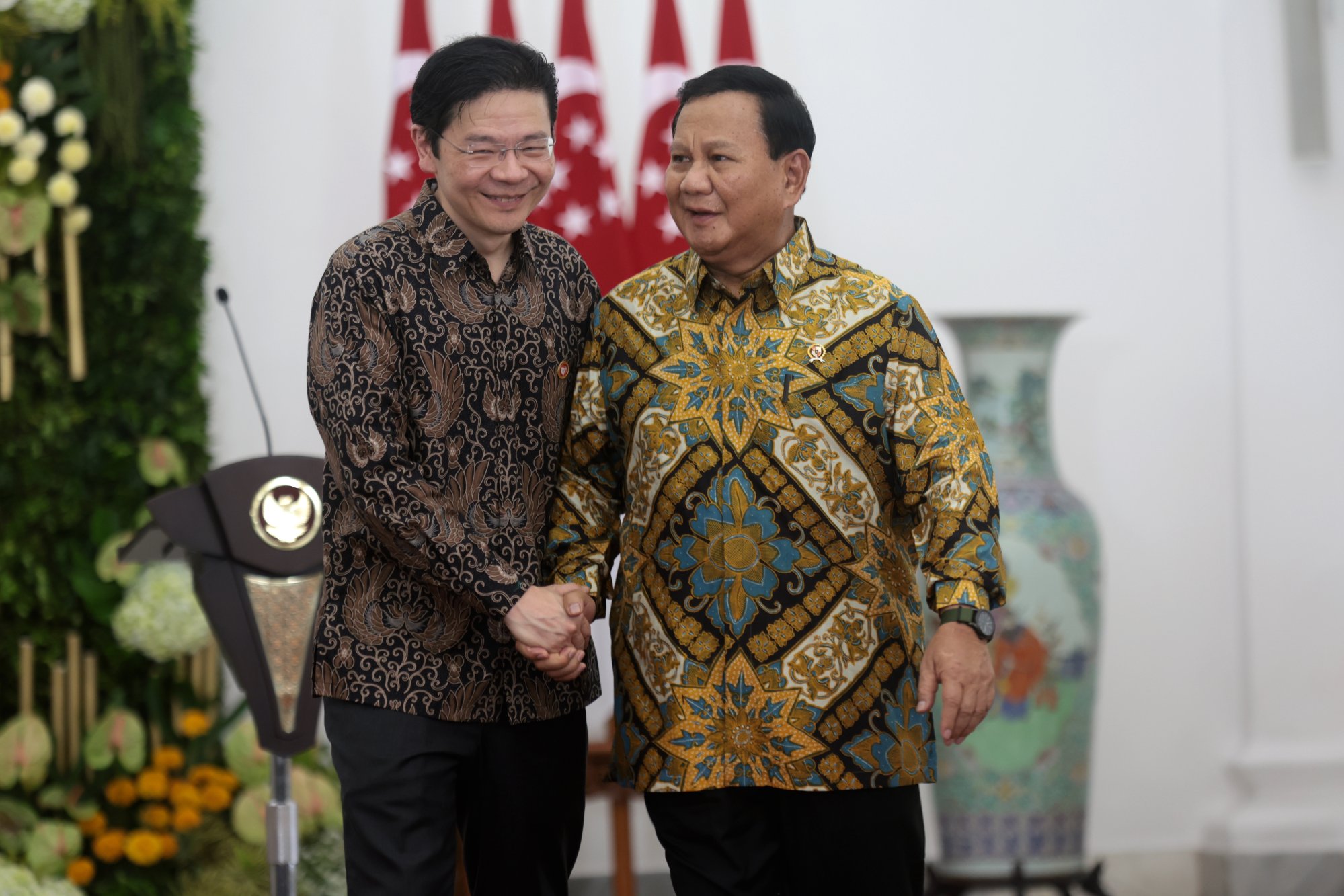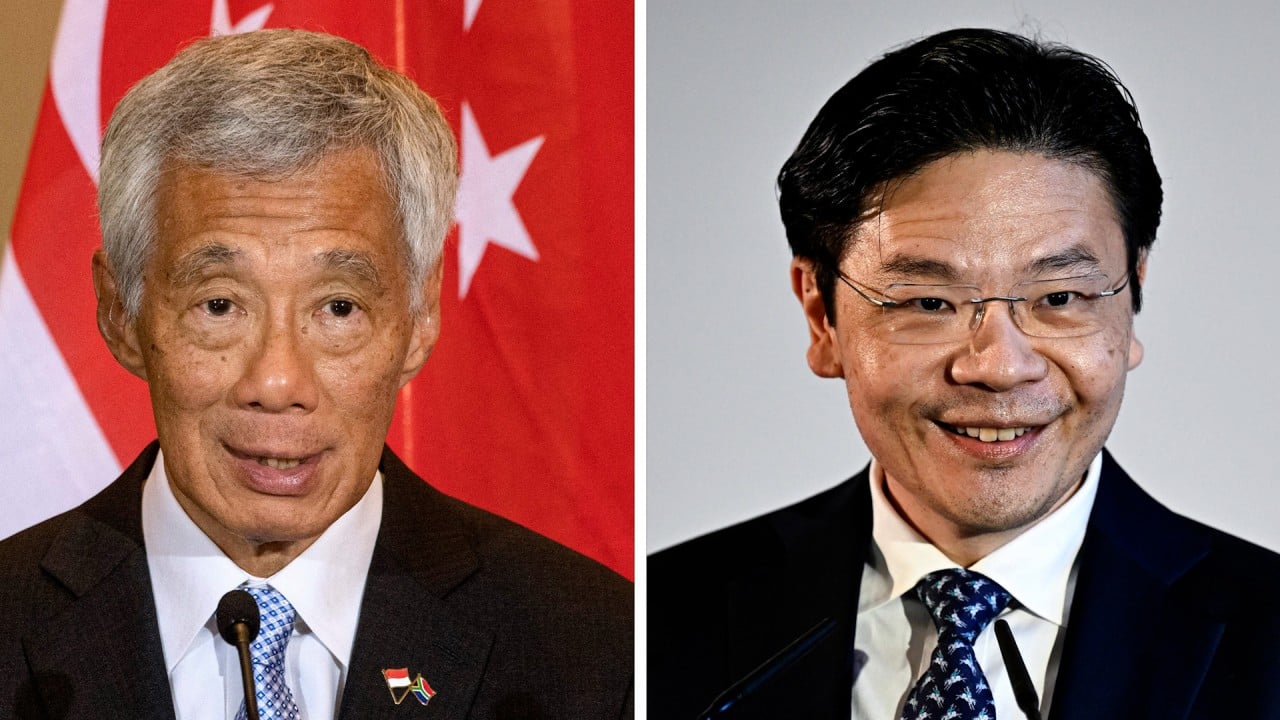Lee cautioned against Singapore succumbing to “populism, tribalism, nativism, or obsessed with short-term gains like other countries”.
This was Lee’s last May Day Rally speech as the head of government. Wong is expected to lead his fourth-generation team in the next general election, which is set to be called before November next year.
In his speech, Lee warned against the potential divisions and fault lines in society between the “have and the have nots, Singaporean-born and naturalised citizens, conservatives and liberals, current and future generations.
“All these differences can be exploited politically, to pit Singaporeans one against another and divide and weaken us. Hence, we have got to continue to work hard to overcome social stresses and tensions.”

The prime minister also touched on geopolitical challenges that the compact city-state must grapple with, such as regional and global power rivalries.
“Looking ahead, there are certainly dark clouds on the horizon but also many opportunities even in a deglobalising, distrustful world. Countries still have to find some way to work with one another. When rivals harbour doubts about one another, trustworthiness commands a premium and Singapore can be a trusted partner.”
Towards the end of his speech, he called on Singaporeans to give Wong their support, before thanking ministers, members of parliament, grass roots and union leaders who had stood by his side.
‘More active’ engagement expected from Singapore, Indonesia’s new leaders
‘More active’ engagement expected from Singapore, Indonesia’s new leaders
“I’ve also prepared a leadership team to succeed me that deserves your confidence and support. As I prepare to hand over Singapore in good order to my successor, I feel a sense of satisfaction and completeness. I have done my duty and I’m very happy that I chose this path of public service all those many years ago.”
Lee had met unionists just weeks before his Labour Day speech, where they discussed how recent global developments were affecting workers and businesses.
Wong, 51, was chosen by his peers in 2022 to lead them but has not had the same length of apprenticeship as Lee or the latter’s predecessor Goh Chok Tong.
Wong, who had his start in the civil service, was not the original choice as Lee’s successor – Heng Swee Keat was the initial heir who later decided to step aside. But Wong came into his own when he made his mark as the co-leader of the government’s Covid-19 pandemic task force.
Lee had previously described the leadership transition as a “significant moment”, adding that Wong and his team had “worked hard to gain the people’s trust, notably during the pandemic”.
After multibillion-dollar scandal, Singapore sees fewer Chinese family offices
After multibillion-dollar scandal, Singapore sees fewer Chinese family offices
Lee had earlier said he would hand over the premiership before he turned 70, but this plan was disrupted by the pandemic. He later said in 2020 that he would stay on as he was “determined to hand over Singapore, intact and in good working order, to the next team”.
Lee, the elder son of the republic’s founding father Lee Kuan Yew, will leave office as the oldest prime minister in Singapore’s history. He turned 72 in February.
Lee will become a senior minister, in line with the tradition of former prime ministers serving a few terms as elder statesmen offering advice to the younger team.
The PAP has governed Singapore for an uninterrupted 65 years since 1959 with a virtually non-existent opposition in the 1970s and early 1980s. That has since given way to a small but sustained opposition presence.
In the current parliament, there are eight opposition members among the 86 elected members of the chamber.

Lee has seen numerous milestones and crises during his time in office. Among his most notable contributions was leading the Economic Review Committee, which was tasked with reviewing the city state’s development strategy and charting a blueprint to restructure the economy.
During the course of his two decades-long leadership, Singapore’s Central Provident Fund scheme and tax regime also underwent significant changes. He also led the country through the financial crisis of 2008-09.
Since his stint as prime minister began in 2004, Singapore’s gross domestic product has surged from S$194 billion (US$142 billion) in that year to more than S$600 billion (US$439 billion) last year.


